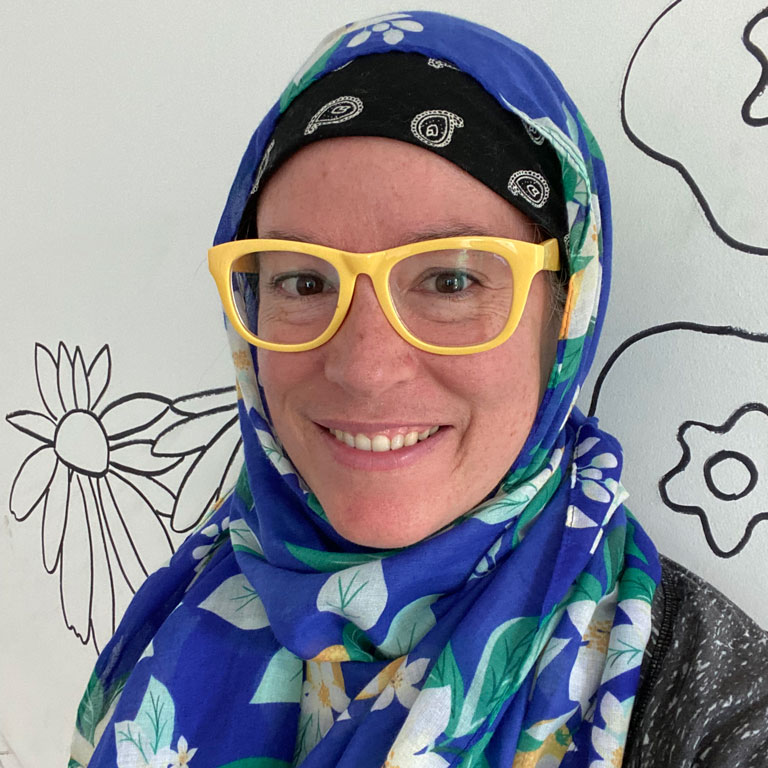Q&A with Heather Akou, studying fashion's impact on society
Heather Akou, associate professor of fashion design, has focused her work on understanding how and why the way people dress has impacted society. She sees her spot in the IUPAH cohort as a means to publish work on the history of work uniforms and to better connect her research with the public.
Question: What are your career goals?
Answer: My current goals are to get promoted and to find a publisher for my first book-length work of creative nonfiction. My long-term goal is to help make fashion studies and fashion collections more inclusive. Dressing the body is a universal human experience, so we can (and should) use it to learn more about one another and to appreciate the rich diversity of individuals and cultures.
Q: What is your greatest achievement as a scholar?
A: When I first started publishing about Islamic fashion in 2007, it was not viewed as fashion by most fashion scholars, but rather as an example of traditional dress (the opposite of fashion). I think my research has helped to shift that paradigm. My current project is a book about the history of work uniforms in the US, which have been almost completely overlooked by fashion scholars despite the centrality of work in American culture. I am proud of the books I have already published, "The Politics of Dress in Somali Culture" (2011) and "Creating African Fashion Histories" (2022), but I think the body of my research is more important than any single achievement.
Q: What are your research interests?
A: As a historian of fashion, dress and the body, my areas of interest include African dress and fashion, contemporary Islamic fashion and working-class histories of dress in the United States. I am especially interested in political rhetoric and laws about dress, such as the ‘burqa bans’ in Europe, laws that forbid the impersonation of government workers and choices that governments make about prison uniforms. I’m preparing to write a chapter about dress as ‘symbolic aggression.’ I have also been gathering data about regalia worn by members of secret societies in Indiana in the early 1900s.
Q: What do you see as the importance of this fellowship and related project?
A: This fellowship is giving me financial support to publish my monograph on the history of work uniforms, but more importantly I see it as a career-changing opportunity to make new connections. In particular, I want to learn about new ways to engage the public in my research, which I think is vital for a scholar at a public university like IU.


